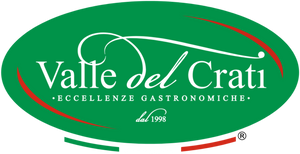The data collected in the latest survey by the Waste Watcher Observatory are quite worrying as they confirm that food waste is on the rise.
While Italians are great fans of cooking and gastronomy and enjoy experimenting in the kitchen, they are too lazy because they have little desire and imagination to recycle food leftovers.
This widespread behaviour produces significant food waste: each of us throws away 693 g of food per week. An alarming number.
What can be done to reduce kitchen waste?
To reverse this sad trend, it is necessary to spread more education about anti-waste practices and to build a real food culture.
It would do us all some good to dust off the old home economics tips so dear to our grandparents, not only to reduce waste, but also to improve the quality of our food.
In fact, food mismanagement is also the main cause of waste and food safety risks.
Let's discover together some small tricks to learn how to store food correctly, prolonging its shelf life and quality.
🍝 Flour, pasta, rice: should always be stored in a dry place, away from sources of heat and moisture. Once the package has been opened, it is best to transfer the contents to a glass jar or airtight container, so they are better protected from insects such as the dreaded pantry moths.
🫒 Extra virgin olive oil: its main enemy is direct sunlight, but it also fears heat and humidity. Choose well where to store it! To preserve its flavour, we recommend keeping it inside a glass or dark tin container, possibly with an airtight stopper.
🥦 Fruit and vegetables: they are among the most wasted foods because we buy too much of them and store them badly. For example: did you know that courgettes, tomatoes, onions, bananas and citrus fruits hate the fridge? And that apples have the ability to ripen all other fruits first so it is best to keep them away from the more delicate ones?
Fruits and vegetables that can be stored at room temperature must be cleaned of any soil residue and stored away from light and moisture in a dry place in the house.
For all vegetables that need to be cold, use the refrigerator compartment.
Also remember that fruit and vegetables should only be washed at the time of consumption and never before.
Onions and potatoes must be kept in a dry place out of the sun to avoid sprouting quickly.
🧀 Cured meats and cheeses: soppressata, sausage, ham and other cured meats in pieces and vacuum-packed, are stored in dry places away from heat and humidity.
Once opened, if not consumed, they can be vacuum-packed again and stored in the fridge.
If it is not possible to vacuum-pack them, then it is better to wrap them first in foil and then in tinfoil and store them in the fridge for up to ten days.
Remember that softer cured meats such as lard, ‘nduja and rolled bacon need lower refrigerator temperatures (between +2 and +7) while more mature meats can be stored at higher temperatures (between +6 and +8), but always in the fridge!
Parmesan, Grana and Pecorino cheeses and other long-ripened cheeses are stored wrapped in food-grade paper or damp linen cloths in the highest compartment of the refrigerator, taking care to change them every time they are used.
🍅 Tomato sauce: have you opened a bottle of sauce but only used half of it? You can store it in the fridge sealed with the cap for up to three days. Alternatively, you can cook it and, once cooled, store it in the freezer; it will be ready to use for your next meal.
Other useful practices to avoid waste are:
1. Making a shopping list before going to the supermarket. It seems obvious, but we often buy things we already have at home. Better to check the larder first and prepare a list.
2. Going to the supermarket on a full stomach. Hunger-driven purchases are the worst! Research has shown that going to the supermarket before meals often leads people to make unnecessary impulse and unhealthy purchases.
3. Read the deadlines written on labels
4. Arranging food in the larder using the FIFO (first in, first out) rule
5. Freezing leftovers
Did you slice too many vegetables? Did you cook the whole package of dried pulses? Portion the food well in appropriate containers and store it in the freezer and always remember never to refreeze thawed food. As you can see, these are really simple tips that we can put into practice straight away. The planet will thank you, and so will your pockets!
